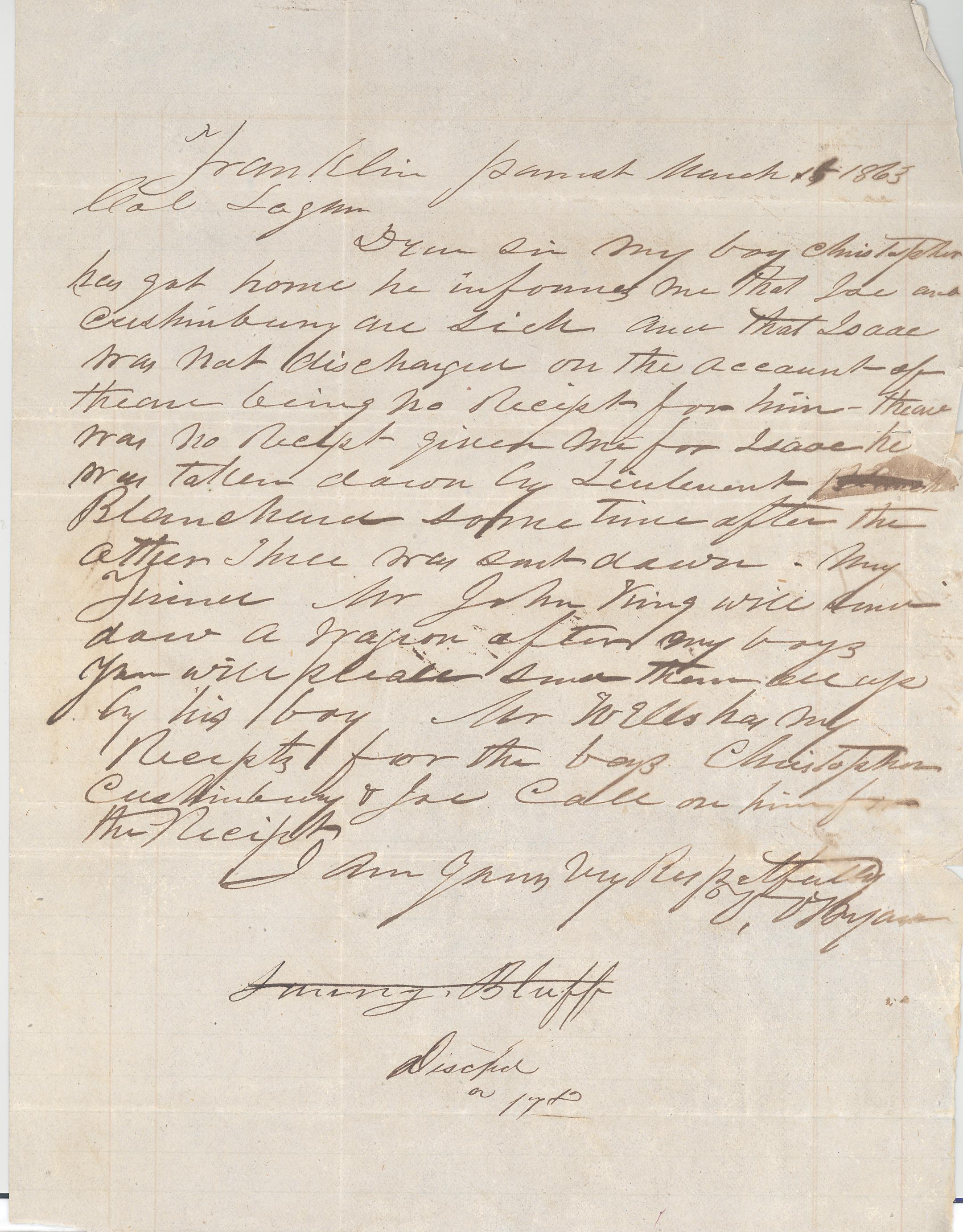Item description: Letter, 15 March 1863, from V.O. Bryan to Col. George Logan, concerning impressed slaves who were not returned to their owner.
More about George W. Logan:
George William Logan (1828-1896) was born in Charleston, S.C., to George William Logan and Anna d’Oyley Glover Logan. In 1849, he moved to New Orleans, La., and, in 1853, he married Marie Telide Soniat du Fossat. Logan, a businessman before and after the Civil War, had interests in the cotton brokerage and exporting firm Logan, Smith, and Claiborne. During the war, he served as a lieutenant colonel in the Confederate Army, commanding a battalion of heavy artillery in Louisiana from 1862 to 1865. The greater part of his service was in the District of Western Louisiana in defense of Fort Beauregard at Harrisonburg on the Ouachita River, near the point where the Ouachita joins the Black River. In September 1863, Logan was ordered to Vienna, La., and, in April 1864, he joined General Kirby Smith in the defense of Shreveport. In March 1865, Logan assumed command at Fort Gallagher near Natchitoches in March 1865 and was paroled in May 1865.
Item citation: From folder 5 in the George William Logan Papers #1560, Southern Historical Collection, The Wilson Library, University of North Carolina at Chapel Hill.
Item transcription:
Franklin Parrish March 15 1863
Col. Logan
Dear Sir my boy Christopher has got home he informed me that Joe and Cushinbury are sick and that Isaac was not discharged on the account of theare being no receipt for him. Theare was no receipt given me for Isaac he was taken down by Lieutenant Blanchard some time after the other three were sent down. My Friend Mr. John King will send down a wagon after my boys. You will please send them [?] by his boy. Mr. Wells has my receipts for the boys Christopher, Cushinbury, & Joe, Call on him for the receipts.
Am yours Very Respectfully,
V.O. Bryan


